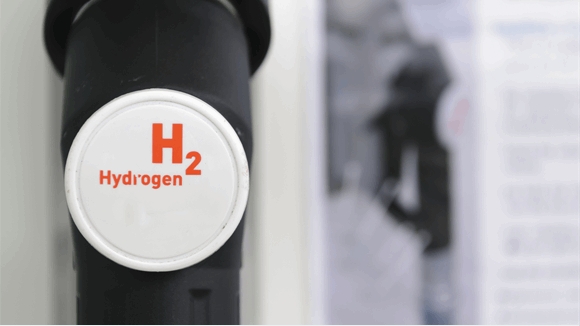
The United Kingdom (UK) government is boosting seven low carbon hydrogen projects with over $26.52 billion (GBP 21 million) in investment, in a bid to become a world leader in hydrogen.
Four of the projects will develop plans for new hydrogen production plants, to supply cleaner fuel to companies across a range of industries such as pharmaceuticals and automotive. These include the Pembroke Green Hydrogen Phase 2 project, a 200-megawatt (MW) electrolytic hydrogen production plant by RWE AG; a 50-MW green hydrogen plant at the Sullom Voe Terminal by Veri Energy; and the Grenian Hydrogen Speke project by Statkraft, Foresight and Progressive Energy.
The remaining projects will help secure the UK’s energy supply by producing home-grown hydrogen for industry and transport, according to a news release Tuesday from the Department of Energy Security and Net Zero. These include Suffolk Hydrogen run by Hydrab Power, which will make green hydrogen for low carbon service vehicles at the Sizewell C nuclear site; Tees Valley Hydrogen run by Exolum, which will build a new hydrogen refuelling station to help supply the local transport sector; and Aberdeen Hydrogen Hub run by BP and Aberdeen City Council, which will provide cleaner fuel for the local fleet of electric buses.
The seven projects have the potential to increase the UK’s capacity to make hydrogen by 800 MW, supporting local communities in reducing their emissions, the agency said.
“We are cementing the UK’s place as a world leader in hydrogen”, Secretary of State for Energy Security Claire Coutinho said. “The new projects we’re funding across the country will boost our supply of clean homegrown energy for use in buses, trains and local businesses”.
“By backing the UK hydrogen industry, we can support over 12,000 jobs and up to GBP 11 billion [$13.89 billion] in private investment by 2030”, Coutinho added.
“We expect hydrogen to play a vital role in decarbonizing businesses and transport as we work towards meeting our net zero targets”, Minister for Energy Efficiency and Green Finance Lord Callanan said. “These new projects announced today are further proof of our enduring commitment to supporting the UK’s growing hydrogen industry on that journey”.
Further, the UK government also launched a call for evidence on the hydrogen and carbon capture, usage and storage (CCUS) elements of the Green Industries Growth Accelerator. Announced last year, the $1.2 billion (GBP 960 million) Green Industries Growth Accelerator will speed up advanced manufacturing capacity in sectors including offshore wind, networks, carbon capture, usage and storage, hydrogen and nuclear.
“Today’s endorsement of seven pioneering hydrogen projects underscores the transformative power and versatility of hydrogen as a bedrock for secure, clean energy solutions”, Hydrogen UK CEO Clare Jackson said. “Such pivotal announcements fortify the UK’s burgeoning hydrogen economy, accelerating us towards meeting our ambitious production”.
Adam Baddeley, Head of Electrolytic & Industrial Hydrogen at Progressive Energy Ltd, noted that the support of the government “is critical to funding the necessary engineering design work to enable development of Grenian’s hydrogen infrastructure”.
“We plan to bid the project into the government’s HAR2 process to secure a 15-year Low Carbon Hydrogen Agreement by early 2025, which [will] enable commencement of operation in 2028”, Baddely added.
The UK in December 2023 announced a plan to make the carbon capture, usage, and storage (CCUS) market in the country “competitive” with a $25.27 billion (GBP 20 billion) investment. The CCUS Vision plan “sets out how the UK will transition from early projects backed by government support to becoming a competitive market in this area by 2035, meaning UK companies will compete to build carbon capture facilities and sell their services to the world”, according to a separate news release.
The CCUS Vision plan includes moving to a competitive allocation process for carbon capture projects from 2027 to speed up the building of the UK’s CCUS sector. It aims to assist projects that cannot transport carbon dioxide by pipeline to enter the market from 2025 onwards by using other forms of transport such as ship, road and rail.
The plan also includes establishing a working group led by industry to identify and adopt solutions to reduce the cost of capturing carbon dioxide, according to the release.